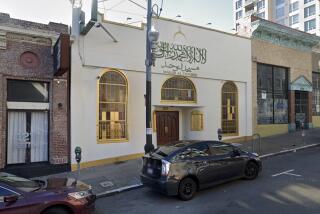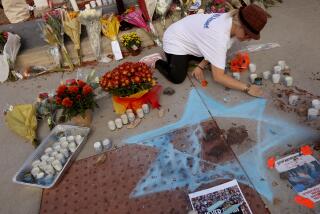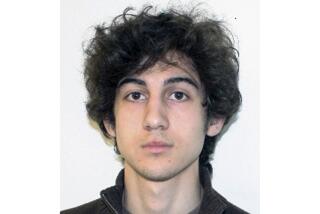Internet imams may have inspired Boston Marathon bombers
Like finding new friends on Facebook or a great deal on EBay, it is easy to locate fiery, radical Islamist imams on the Internet who will guide the willing toward the path of bomb making, random slaughter and martyrdom. Tamerlan Tsarnaev, the accused Boston Marathon bomber who died in a shootout with police a week ago, seems to have connected with a number of these firebrand theologians in exactly that way.
Tsarnaev did not pick up his militant ideas at his local mosque. In fact, it is being reported that, on two occasions, Tsarnaev interrupted Friday prayer services at a mosque in Cambridge to criticize the speaker for being too liberal and accommodating. At a news conference Wednesday at that mosque, Yusufi Vali, executive director of the Islamic Society of Boston Cultural Center, said Tsarnaev’s outbursts did not reach a point that was disturbing enough that mosque leaders felt a need to contact police.
“We thankfully live in a country where freedom of speech is respected, so if someone disagrees with you, you don’t just call law enforcement,” Vali told reporters. “If we’d seen any behavior that would have suggested that they’d broken the law or were going to do anything of this sort we would have definitely reported to law enforcement.”
In an interview on KPCC-FM (89.3) in Pasadena, Sheikh Yassir Fazaga, religious leader of the Orange County Islamic Foundation in Mission Viejo, said that, despite what the public may believe, few would-be bombers emerge from American mosques. Most of the teaching in those mosques is too moderate and even ecumenical for any disenchanted Muslim seeking inspiration for violence, he said.
“What is not tolerated in our mosques is the whole idea of insinuating, suggesting, implying suggestions of violence,” Fazaga said. “There is a zero-tolerance policy when it comes to this.”
Unsatisfied with such moderation, Tsarnaev was forced to find what he was looking for online, investigators theorize. Authorities assessing the motivations of the bombing suspects appear convinced that Tamerlan and his younger brother, Dzhokhar Tsarnaev, were self-radicalized, “lone wolf” terrorists. Just as they may have gotten their recipe for pressure-cooker bombs from the Internet, so, too, it looks as if they entered cyberspace to indoctrinate themselves with ideas that justified blowing up innocent people.
The rise of the Internet has brought blessings, but also a great many curses. Perhaps the greatest curse is the vastly expanded reach of fanatics with abhorrent, deadly ideologies — a reach that extended to the finish line of the Boston Marathon.
More to Read
A cure for the common opinion
Get thought-provoking perspectives with our weekly newsletter.
You may occasionally receive promotional content from the Los Angeles Times.







